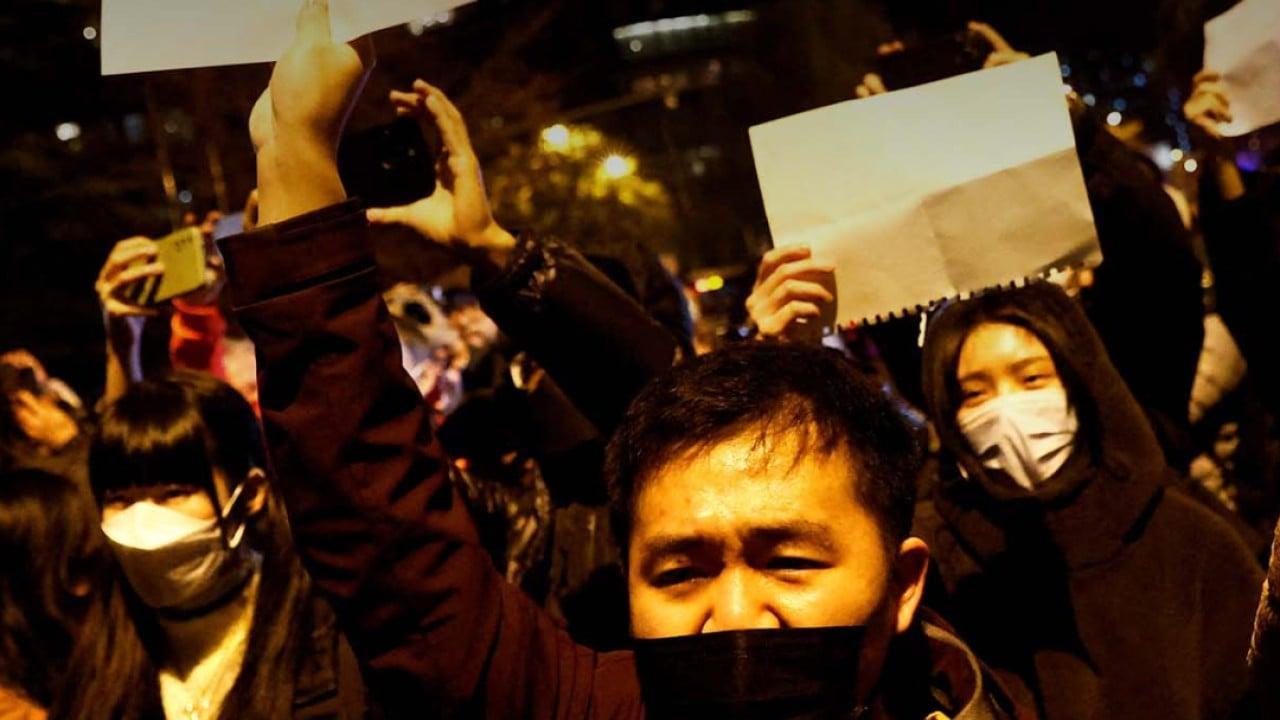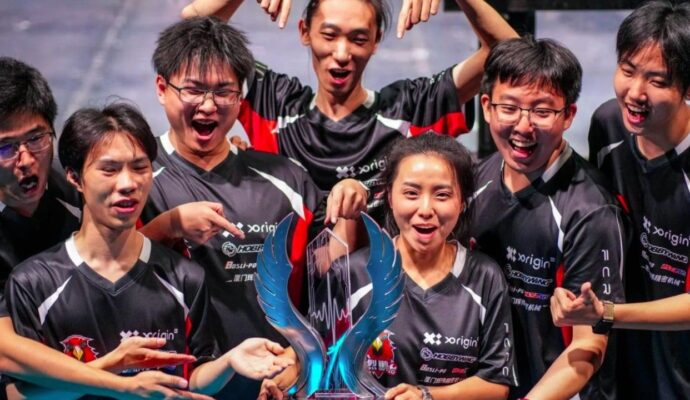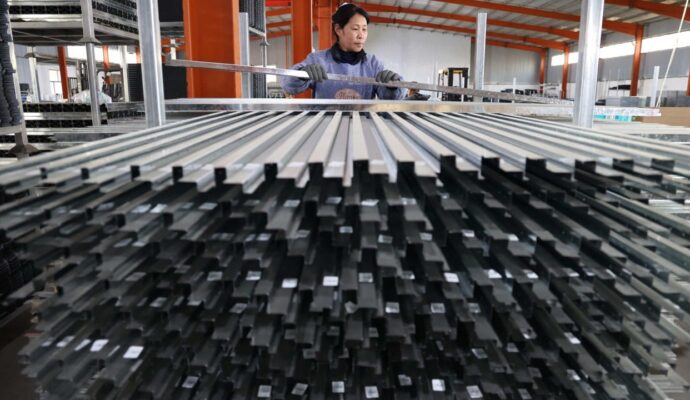
In Shanghai some chanted slogans criticising the Communist Party while others held up blank sheets of paper – a symbol of anger against restrictions on speech.
While the fire in Xinjiang was a trigger point for many, their frustrations over China’s Covid policies have been building well before it, according to protesters who talked to the Post.
The deaths came two weeks after China rolled out fresh rules that sought to ease its Covid restrictions and minimise the impact on the economy.
A 30-year-old Shanghai protester said the “unconfirmed facts” of the Urumqi fire were the final straw.
“Chinese people have been too timid for far too long. After three years [of zero-Covid], they finally spoke out about basic human rights, what’s wrong with that?” the protester said.
“The [fire] was only a juncture, getting people to question why there isn’t freedom, why is the reality in contrast to what the authorities have claimed, and why weren’t the media verifying murky facts?”
A 40-year-old Beijing freelancer who gave her name as Qingtong said she had attended a protest next to the Liangmahe river to hear the voice of the young.
“Young people who have paid the price for the Covid restrictions should have room for expression,” she said. “Their employment is the basis of future stability and development. Without them, China would have no future.”
Zero-Covid policies have been blamed for a number of other deaths, with patients being denied hospital treatment, including a heavily pregnant woman who lost her baby after being turned away from a hospital in Xian in January.
In September, a coach carrying 47 people from Guiyang, the provincial capital of Guizhou, to a quarantine facility some 240km (150 miles) away overturned, killing 27 of those on board.
“The most striking thing is really how people across the country are motivated and united by pretty much a shared concern that spilled out onto the streets and university campuses which makes the scale of the protests much more substantial,” said Dali Yang, a political scientist at the University of Chicago.
People leave tributes for the Urumqi fire victims at Shanghai’s Wulumuqi Road or Middle Urumqi Road. Photo: AP
He said the fire, and reports that residents had been unable to get out of the building had prompted people to realise “this really could happen to us”.
Meanwhile, a spokesman for British Prime Minister Rishi Sunak condemned as “shocking and unacceptable” the detention of a BBC journalist covering a protest in Shanghai.
The spokesman said Britain would raise concerns with China about the response to protests while the government would continue to seek constructive relations with the country on other issues.
A 26-year-old business consultant who took part in the protest on Urumqi Middle Road in Shanghai on Sunday evening said his grievance started with seeing photos of a protest in Beijing in October, where a lone man hung banners protesting against the zero-Covid policy and the Communist Party.
“I think everything started with the protest of Sitongqiao [the bridge where the protest happened],” said the man who refused to be named.
“When I was outside, I felt people were there for a range of reasons. It was not coherent but a strong sentiment was that people desperately needed a window to vent.”
The central government continued to argue that its policies were designed to balance safeguarding the population from Covid with protecting people’s livelihoods.
Protesters hold up blank sheets of paper in Beijing. Photo: Reuters
Sun Chunlan, the vice-premier who is leading the battle against Covid, said during an inspection tour of Chongqing that the authorities were seeking to “cut off the path of transmission” during a local outbreak while lifting the lockdown as quickly as possible.
“We wish to see a ‘scientific and accurate’ approach but it looks like they can’t achieve it,” said Jin Dongyan, a virologist at the University of Hong Kong.
“Implementation of the 20 measures [recently announced by Beijing] should continue but whether the people are patient enough to wait for the outcome is another matter.”
Additional reporting by Kinling Lo



